Though not classified as a mental health disorder, self-harm is a behavior that warrants swift intervention.
Sometimes referred to as self-mutilation or self-injury, self-harm refers to behaviors people engage in with the purpose of intentionally hurting themselves. This most commonly occurs in the form of cutting oneself, but anytime a person tries to deliberately hurt themselves qualifies as self-harm, according to the National Alliance on Mental Illness (NAMI).
By finding the right level of professional intervention, you can prevent some of the devastating effects this behavior can produce. East Tennessee Behavioral Health offers inpatient and outpatient treatment for people who are engaging in self-harm.
Signs & Symptoms of Self-Harm
The signs and symptoms of self-harm depend on a number of factors, including the type of self-harm a person is engaging in, their age, their personality, and their history of mental illness.
Some people may do everything in their power to hide physical indications of their behaviors, so the signs and symptoms of self-harm may not always be easy to recognize. Generally speaking, though, self-harm signs and symptoms include:
- Scars that occur in visible patterns
- Wearing long sleeves and pants or baggy clothing in hot weather
- Broken bones with no obvious cause
- Frequent isolation
- Excessive agitation
- Always having sharp objects nearby
- Persistent feelings of guilt, shame, or failure
- Major changes in appetite, weight, and energy levels
- Impaired motor skills
- Acting out unpredictably or impulsively
If you fall into some of these categories, it may be time to pursue professional self-harm treatment. You can learn strategies and coping skills to prevent future self-harm.
Self-Harm Statistics
Self-harm is most common during the teenage and early adult years, but it can occur at any point in a person’s life, according to NAMI.
The following are some statistics on how prevalent self-harm is across the United States:
- The National Institute of Mental Health (NIMH) says that women are more likely to resort to cutting as a self-harming behavior, while men more often use burning or hitting.
- At least 35% and as high as 50% of self-injurers may be male, according to the American Psychological Association (APA).
- Approximately 17% of adolescents have attempted self-harm one or more times, an international meta-analysis from the University of Wisconsin-Eau Claire found.
- Acts of self-harm are often predictors of suicide attempts, according to a 2013 Journal of Adolescent Health study. Students who self-harmed without reporting suicidal thoughts at the beginning of the study’s trial period were 3.4 times more likely to have attempted suicide by the end of that time frame.
Potential Effects of Self-Harm
The negative effects of self-harm can be hard to spot, whether they’re physical or emotional.
In addition to masking physical effects, people who self-harm often feel shame and guilt that may be difficult to discern. Examples of the effects of self-harm include:
- Permanent scarring
- Abuse of alcohol or other substances
- Suicidal ideation
- Onset or worsening of mental health concerns
- Disconnecting with friends and family
- Lack of employment leading to financial struggles
- Frequent feelings of embarrassment or guilt
- Low self-esteem
If you receive comprehensive self-harm treatment, you may be able to stop some of the effects you’re already experiencing and prevent future damage.
Therapies Used in Self-Harm Treatment
Self-harm has different effects on different people. Because of this, at East Tennessee Behavioral Health, we give each patient a personalized treatment plan that considers their unique needs, treatment goals, and mental health history.
Prior to admission, you’ll complete a thorough assessment that will serve as the foundation for your self-harm treatment plan. Once you begin treatment, your plan may include:
- Group therapy
- Family therapy
- Basic medical care
- Individual therapy
- Medication management services
- Detoxification services if you have a co-occurring substance use disorder
Our staff will monitor your progress and make any necessary adjustments throughout the course of treatment.
We work hard to tailor each person’s treatment approach to the methods of healing that best reflect their needs. During self-harm treatment, your programming may include elements of motivational enhancement, cognitive behavioral therapy (CBT), and dialectical behavior therapy.
Benefits of Self-Harm Treatment
Self-harm can cause you to feel guilt, shame, and embarrassment. It can also leave you feeling like you’re all alone. If you’re feeling like there’s no one who understands what you’re going through, self-harm treatment can help you regulate those emotions and develop positive coping skills.
Seeking help at a self-harm treatment center can restore hope to a life that can feel like it’s tilting sideways. You’ll work with staff members who can help you examine the roots of your struggles and work on ways to end the turbulent cycle of self-harm.
You may also have the chance to take part in treatment sessions with others who have engaged in self-harming behaviors. By hearing about their experiences, you can discover that you’re not alone. There’s often strength in numbers, and finding common ground with other patients can be a significant benefit during your time with us and beyond.
Choosing the Right Self-Harm Treatment Center
Finding a self-harm treatment center can be intimidating. But with each person having a different experience on their journey toward better health, it’s important to find professional intervention that offers personalized treatment plans.
A good self-harm treatment place will take into account your specific symptoms and current condition to provide the individual help that can lead you to where you want to be. Questions you should ask when looking for self-harm treatment include:
- Do they offer multiple levels of care that can help me progress in my healing?
- How does the admissions process work?
- Will I receive a personalized treatment plan, or is it more of a one-size-fits-all approach?
- What type of mental health professionals will I be working with?
- What happens when my time in treatment is over?
At East Tennessee Behavioral Health, we offer multiple levels of care to meet you where you are in your journey. Our streamlined admissions process is designed to help you get into treatment quickly, and our staff of clinical experts will guide you through a personalized plan that takes into account your unique needs. When treatment is over, we’ll provide you with a comprehensive discharge plan that contains resources to help you maintain the progress you made with us.
This content was written on behalf of and reviewed by the clinical staff at East Tennessee Behavioral Health.















